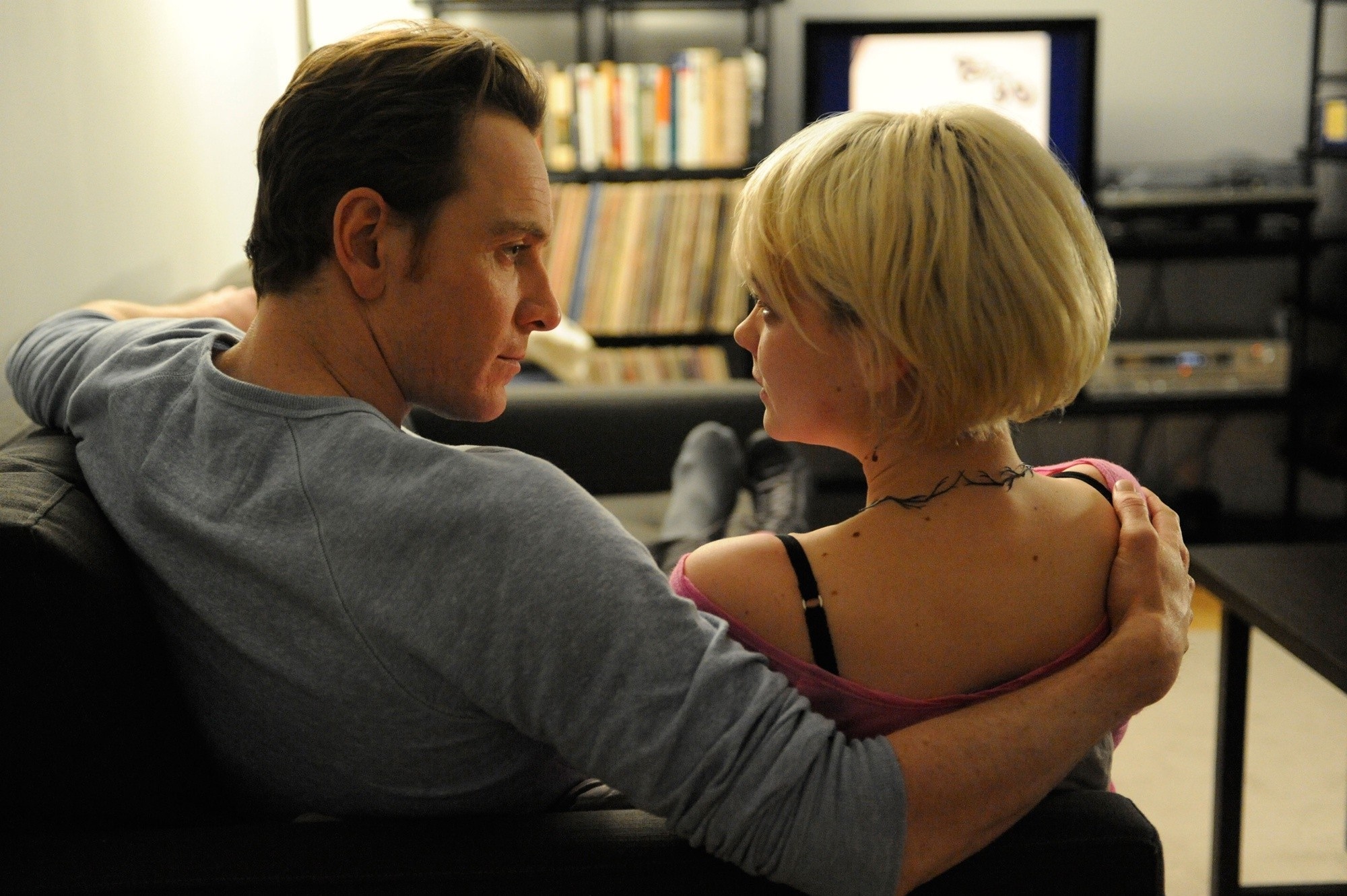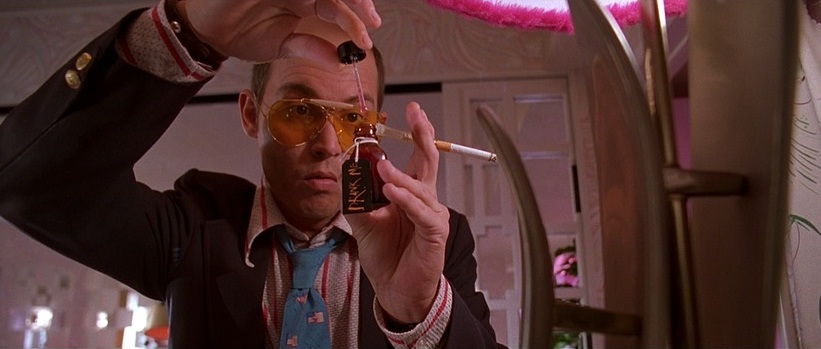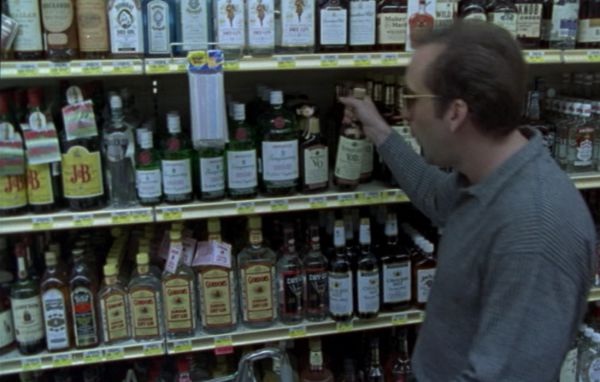Addiction. HILARIOUS, right?
Not the case. Addictions, as you may have heard, are torturous, debilitating, tragic illnesses that can wreak havoc on the lives they affect (keep reading, it gets less horrible). Though, somehow, film and television have taken to depicting the various types of addictions in farcical, belittling, often humorous ways. Think of how many movies you’ve seen that play drug abuse for laughs. How about the cartoonish portrayal of compulsive gambling in every other TV series since The Flintstones? And lest we forget the one addiction that probably gets the least credit as a legitimately painful disease: sex addiction.
Sex addiction is the subject matter tackled, with a great appreciation for all turmoils attached, in the upcoming film, Shame. In some sense Shame is a pioneer in this realm. Sex addiction is rarely ostensibly touched upon in film and TV. Sure, you’ve got your standard stock characters whose identities are consumed predominantly by sex—your Sam Malones, your Vince Masukas, your Barney Stintsons, your Glenn Quagmires—but seldom is the notion of this type of behavior being representative of an agonizing addiction actually braved. And such is the case for all addictions. Drug abuse, gambling problems, alcoholism, nicotine reliance…they’re all made out to be funny, and rarely invocative of any real pain or consequence.

But here’s the problem: that’s not the case. And to propagate the idea that these addictions are laughable, casual character quirks is to do a disservice to the dignity of those enduring them in real life, and to trivialize their quests to overcome them. Take a movie like Blades of Glory. Now, I know that many will roll their eyes at my hypersensitivity, proclaiming that Blades of Glory isn’t really meant to be taken with a large degree of sincerity or authenticity. But just roll with me, here.
In one scene of the 2007 comedy film, Will Ferrell’s character attends a support group for people dealing with sex addiction—the whole bit, as one would expect with any issue tackled in this sort of movie, is played entirely for laughs. The opening psalm is riddled with comical imagery about what sexual compulsions will drive you to do, and the meeting concludes with all of the addicts pairing off and fleeing to privacy for what is illustrated to be an enjoyable bout of passion.
But the reality of it is, this is not at all a depiction of sex addiction—it’s something else entirely. Yet, many films continue to portray the disease with a brighter spin, removing the whole “disease” factor entirely.
And then there’s Shame: the powerful, dynamic drama that invites an authentic exploration of a man suffering—really suffering—from an addiction to sex. Director Steve McQueen teams with acting supercomputer Michael Fassbender to deliver the story, and it’s a story more than worth our time and contemplation.The genuine pains of sex addiction may have been skirted so long in the media due to the scarcity of public education about the issue. However, even regarding addictions about which we as a society in general are far more knowledgeable, there remains a dichotomy between the heavy, accurate and sympathetic portrayals and the destructive, farcical and insincere ones.

The broad spectrum of drug abuse has its share of films on both sides of the spectrum. Further, films that attempt to authentically tackle the tragedy of drug addiction are ones with which we’re all likely quite familiar: Requiem for a Dream is the leader of this category. Darren Aronofsky (who, indicated both by this film and his recent anti-meth PSAs, is clearly a passionate crusader against drug abuse) paints a picture we’ve all tried to shake off—one of desperation, degradation, and absolute rock-bottom misery, resultant of the abuse of and addiction to heroin and pills.
Some others to do the struggle justice include Trainspotting, Christiane F., and a pair of cowboys films (one Midnight, one Drugstore). But of course, there are a slew of films that either glamorize, villainize or humorize one-dimensionally drug addicts and their plights with this illness. In the 2002 comedy Orange County, Jack Black’s character—the funniest character in the movie—abuses a wide variety of substances (a good deal of his humor derives from this).
Taking this a step further is a film actually applauded formidably for its glorification of drug use: Fear and Loathing in Las Vegas. It may be based on true events, but Fear and Loathing takes a very celebratory point of view on drug and alcohol abuse in a story about two men—neither of whom can go a scene without smoking, snorting, huffing, drinking or in some other way infusing their body with a toxic substance—on a hedonistic trip through the Nevada deserts to the Las Vegas strip. Yes, it’s twisted. Sure, there are some dark turns. But all in all, you don’t exactly leave this movie with an aversion to the idea of drug use.

Gambling addiction is a theme with a greater track record of presence in television than in movies. A multitude of sitcom characters have struggled with temporary, cartoonish, usually none-too-serious examples of gambling addictions: Kramer on Seinfeld, Dorothy on The Golden Girls, Marge on The Simpsons…and of course, there’s this.
One show that actually did make a more earnest attempt at the illustration of the legitimate struggle attached to compulsive gambling was Taxi, which informed audiences of Judd Hirsch’s character’s history with the problem shortly before launching him back into his old habits. As with the nature of the series, the mood of the story was twofold: there was, indeed, a fair share of humor involved, but a thick presence of gravity and pain as well.
And, of course, there’s alcoholism. I’d go out on a limb to say that the abuse of alcohol—both sincere and farcical depictions—trumps that of narcotics, gambling or sex in terms of its prevalence in film and television. Alcoholics range from being tortured, poetic souls to bumbling, word-slurring comic reliefs. We’ve seen them both riddled with agony over the call of the drink, and eagerly in pursuit of the next madcap, liquor-infused night on the town. When it comes to a reverence for struggles with alcohol addiction, Leaving Las Vegas (it’s apparently an addictive city) is adorned as among the most true-to-life and captive of the experience—although it’s not without its Hollywood angles. Still, the Nicolas Cage-starrer is leagues beyond the genus of films that point at laugh at the town-drunk stumbling merrily from one bar to the next.

Now, don’t take this vantage point as a complete vilification of these movies. I love Fear and Loathing. I think Jack Black is comedic dynamite. I’ve watched more Seinfeld and Simpsons than any human being healthily should. There are countless films and programs in the same company that I find perfectly entertaining, and, perhaps in other respects, perfectly valuable pieces of the medium.
But the issue is as such: for every one of these depictions of an addiction, we need a film like Requiem, like Leaving Las Vegas, like Shame. Comedy can absolutely prove useful as a vehicle for dealing with and overcoming the pains and sorrows of any tragedy or illness, addiction not excluded. However, before this method can be upheld, we must have a firm understanding of the sincerity and gravity of the situations at hand. Movies like Shame are invaluable, in that they are both educational and evocative. We might come away from nine out of ten feature films laughing about the zaniness of addicted individuals—but when one makes an effort to throw us into the harrowing, tumultuous experience that real-life addicts have to deal with every day, it can make a world of difference.


